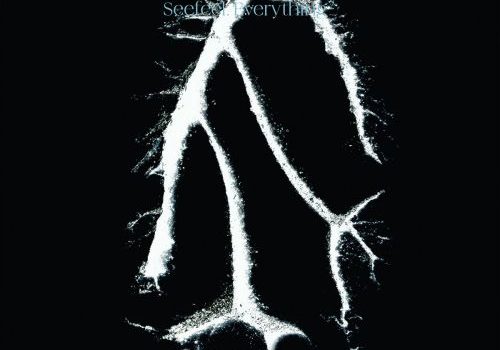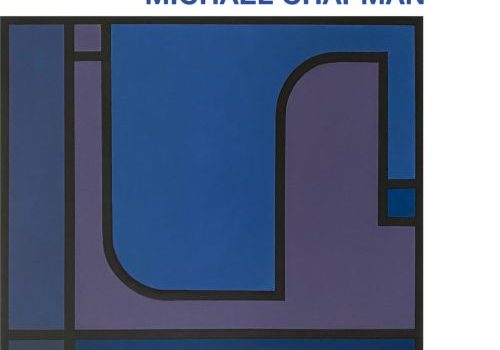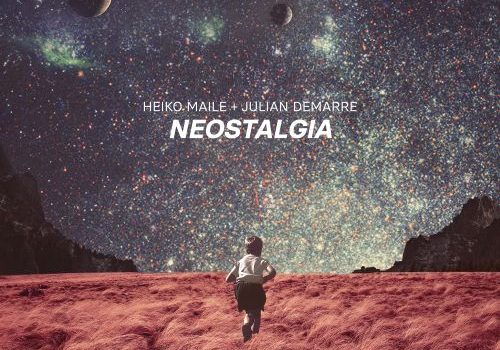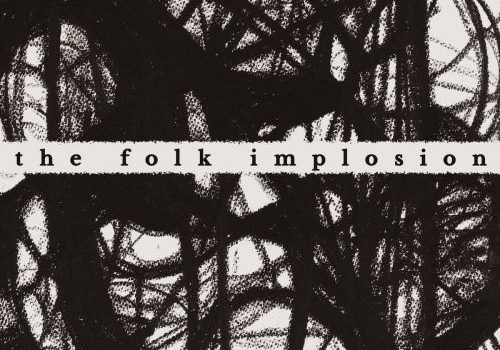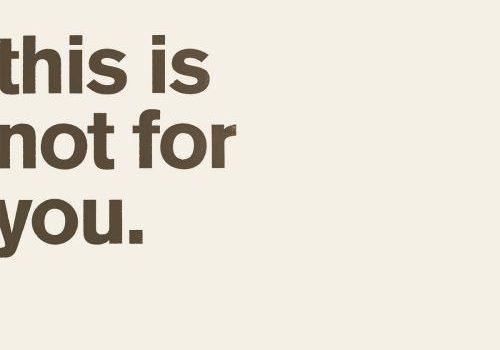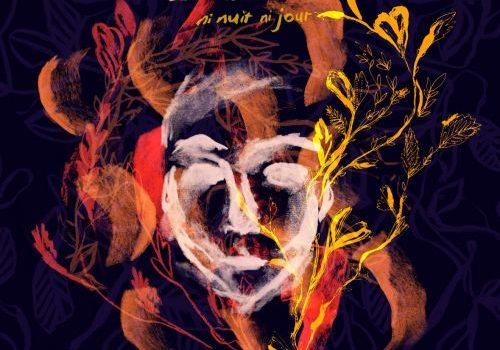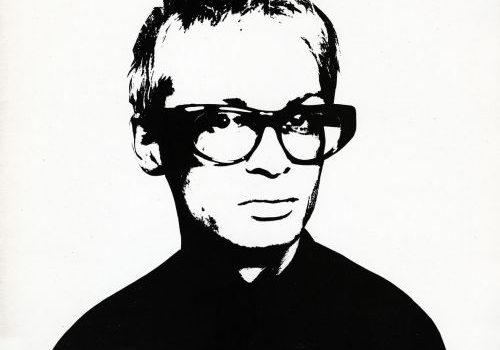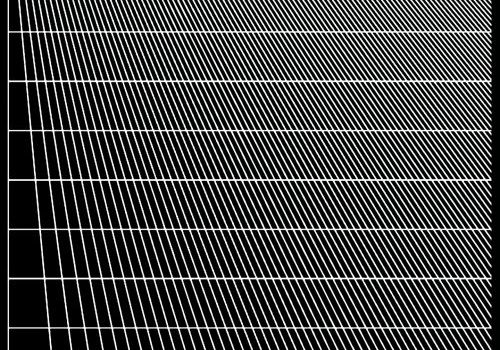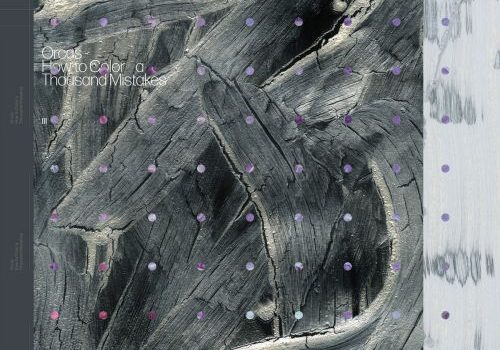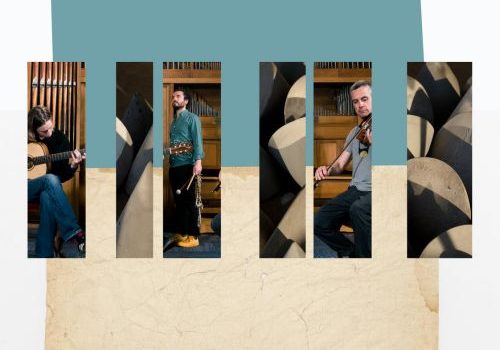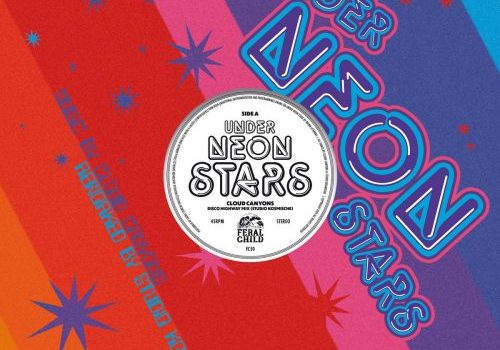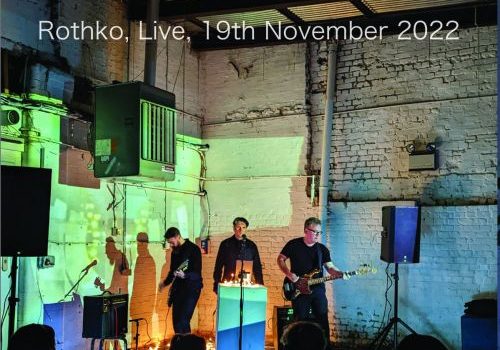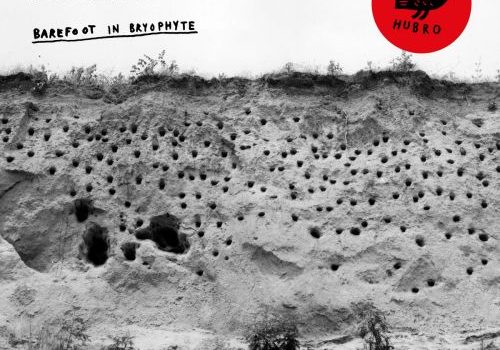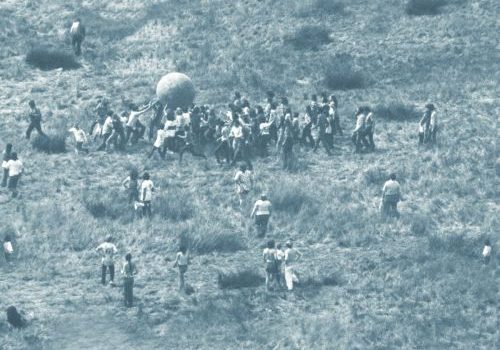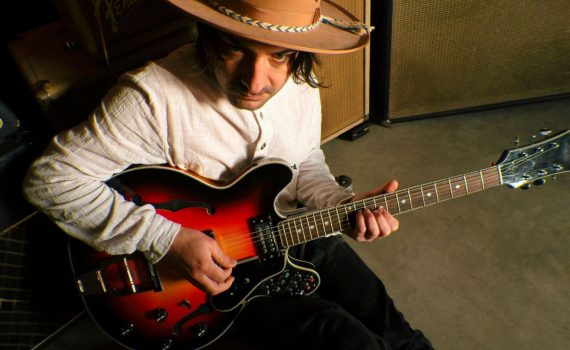The members of this singular quartet have played together in various permutations for the last twenty years, ever pushing the sound envelope; but here the angle is an acute one. Recording over one day, they based their improvisations on sounds that were generated by synthesisers programmed to listen to and respond to what the players were initially playing. An oddly circular conundrum that turns the idea of AI generation on its head and an intriguing proposition to say the least.
Mr Olivetti
The first new music from Seefeel since 2010's self-titled LP is a really welcome return and although now down to a duo of Mark Clifford and Sarah Peacock with assistance from bassist Shigeru Ishihara on a couple of tracks, it sounds as though they have never been away.
The fact that the originals are included on the second disc allows the listener to sort of follow the process although Andrew's compositions really only share the lightness of mood and gentle air, choosing banjo as his favoured instrument over guitar. What we have is two thirty-minute selections that share some space but offer the listener an opportunity to take a breath, step back and allow the warm sounds to wash around you.
Electronic composers Heiko Maile and Julian Demarre have been working together on and off for the best part of thirty years, but mainly in the world of film scores. Finally the duo has decided to release Neostalgia, their ultimate paean to the classic era of electronic music. Uncovering rare Japanese keyboards from the seventies and dipping into ideas that fondly remember the Barrons and Tangerine Dream in equal measure, but also inject elements of tension, recalling the likes of S U R V I V E in the end result, some of which wouldn't be out of place on the Stranger Things soundtrack.
Australian percussionist and composer Laurence Pike is always thinking beyond the obvious realms of percussion-based music and over the course of the last few years has been deliberating over a requiem for voice and percussion. The death of his father-in-law was the catalyst that saw this project begin to take shape and what he has finally released is an outstanding memorial that also works as a fine musical adventure.
The downtime and lack of contact between them has not diminished their rapport and perhaps surprisingly the Walk Thru Me sounds as if it could have been recorded a few years after 1999's One Part Lullaby, but then their sound always did stand outside of any prevailing trends.
Scottish-Portuguese sound artist Shhe follows up 2019's self-titled album with a long, slow suite of pieces constructed with sounds gathered on a residency in Iceland. The tranquillity and peace of the fjords very much inhabits this unassuming but engaging album, the four sections rising above ambience with drones that lift the listener, giving a bird's eye view of a landscape lost under a frozen carapace.
Two very different albums from musical adventurer Matthew Bourne showcase his extraordinary approach to the keyboard in all is myriad forms. It doesn't seem that long ago that the two volumes of his collaboration with Shiver were dropped and now there is a further release from Discus, as well as a follow-up to the limited Dulcitone release on Leaf.
Utilising an unusual collection of instruments including a hand-made French form of hurdy-gurdy called a boîte à bourdon, each construction is unique, mixing Pierre-Antoine Despatures's double bass with the scattered guitar of Benjamin Garson and the clarinet and sax of main protagonist Clémentine Ristord.
...Bureau B have taken it upon themselves to make it available again and not before time. Over eight unlikely tracks and forty intriguing minutes, Jimi takes us on a trip through his mind, paring the analogue with the synthetic in a way that was unexpected at the time, but in reality was a matter of necessity. Whatever the genesis though, what came out was strangely beguiling and due to the keenness of Tommi Gronland and Mika Vainio and their fledgling Puu label, so began a fascinating thirty year career.
Electronic / classical composer Tristan Perich has prepared the most intense vibes related album I have heard in a long time. Teaming up with Ensemble 0, they have taken three vibraphones and created a suite of glittering, polyrhythmic movements that showcase the instrument at its lightest and most fleeting; but allied to these, Tristan employs 1-bit electronics as a counter to the vibraphone sweetness.
Rafael Anton Irisarri and Benoît Pioulard don't convene too often to produce Orcas albums (this is their third in ten years), but on those occasions that they do, the time just drops away. That heat-haze waver that threads throughout the album, the soft warmth of Benoît's voice; an enunciated dreaminess that he shares with the long-lost Eric Matthews is all here as we would hope. Everything seems to shimmer as if heard through the clearest water and there is sedate sense of control that is struck with Ride-like explosions of shattered guitar splendour, showering over the lugubrious bass.
Ireland's Córas Trio tread a fine line between folk, improv and jazz; and on this, their first album, they have utilised the disparate elements of violin, guitar and percussion to create a suite of songs that with one eye on the past have their feet set firmly in the future. Their recognition of the tradition of Irish music is countered with how best to move it forward, and with such titles as "Jackie Fitzpatrick's" and "George White's", you feel that a get- together with friends down the local bar is as important an element as the songs themselves.
Feral Child are celebrating in style with their fiftieth release; in a really stylish glossy disco bag, Italian experimental adventurers Cloud Canyons have been given a makeover by Dom Keen's very own Studio Kosmische. Over two ten-minute tracks, Cloud Canyons share a cut from their recent album and one track just for this release with Dom to see what fresh magic he can uncover.
Their 2016 album release A Young Fist Curled Round A Cinder For A Wager was a startling journey through a hard Northern life, the ups and downs of the protagonist rendered in vivid detail by Johny and then instrumentally brought to life by Mark and James. It gave Rothko a new lease of life and certainly seems to have been mutually beneficial, with Mark undertaking duties in the touring Band Of Holy Joy.
Nordic travellers Stein Urheim and Mari Brunvoll have played together on and off for some years now, their delightful vocal duet a magical salve to the current malaise. Bringing on board tricky trio Moskus to add some unscripted textures to some recently recorded songs is a recipe for genre-dodging if ever there was one. The quintet knows absolutely no boundaries and over the course of this forty-five or so minutes, they play the field as if trying to break the Guinness World Record for most diverse album.
I kept imagining that what I was hearing is what might happen if somebody kidnapped the B52s, got the band drunk and started slowly torturing them. It is not so much post-punk as post-apocalyptic, with rhythm crawling from flaming wreckage, a spiral of unsteady guitar body-slamming the bass and drums as the voices taunt and tease.
The concept of a “desert sound,” if such a term truly exists, is more about a state of mind than a specific genre. It embodies a sense of vastness, solitude, and sounds stretched to the limits of the infinite. While I wouldn’t say the desert sound has always been a direct influence, the themes it represents have certainly resonated with me throughout my music.
